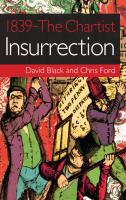 The following is a response to an article trying to enlist the poet Homer on the side of hawks by the Boston Globe’s resident neocon right winger Jeff Jacoby. This letter was not published.
The following is a response to an article trying to enlist the poet Homer on the side of hawks by the Boston Globe’s resident neocon right winger Jeff Jacoby. This letter was not published.
 The following is a response to an article trying to enlist the poet Homer on the side of hawks by the Boston Globe’s resident neocon right winger Jeff Jacoby. This letter was not published.
The following is a response to an article trying to enlist the poet Homer on the side of hawks by the Boston Globe’s resident neocon right winger Jeff Jacoby. This letter was not published.
Nasty exchanges about “identity politics” in Left circles on FaceBook I’ve glanced at recently haven’t seemed very relevant to my work as a teacher educator or union activist. This is curious because I know one reason education is so contested is that schools reproduce (or change) the beliefs that underlie the society’s political and economic arrangements. Schools and teachers convey how we make sense of our identity, as a society and as individuals. So why does the debate seem tangential to me?
The two great loves of my father’s life were the Green Bay Packers and golf. Every fall Sunday we worshipped at the altar of the Green and Gold. My brother and I learned, at an early age, that we could only talk during commercials and half time. Our Sunday routines created my love of armchair sports. Today, in addition to following pro football, I watch college basketball and football, pro basketball, baseball and tennis. Too often feminists and leftists dismiss the importance of sports in society and only focus on the machismo culture encouraged by profe
In the six months since Jorge Mario Bergoglio, an Argentine cardinal, became Pope Francis, it has become clear—particularly from his recent interview—that he is a reformer who intends to turn the Catholic Church away from some of the rightwing attitudes and elitist style of his predecessor Pope Benedict XVI.
 Review: Thomas Sakmyster. A Communist Odyssey: The Life of József Pogány / John Pepper. Budapest-New York: Central European University Press. 2012. Photos. Bibliography. Index. 249 pp.
Review: Thomas Sakmyster. A Communist Odyssey: The Life of József Pogány / John Pepper. Budapest-New York: Central European University Press. 2012. Photos. Bibliography. Index. 249 pp.
In the left-academic circles in which I travel, the March release of Vivek Chibber’s book-length critique of Subaltern Studies caused quite a stir. Chibber debated one of his antagonists, Partha Chatterjee, at a plenary session of the Historical Materialism conference in May, a confrontation which provided endless fodder for debates on FB and within the Left blogosphere.
 Book Review of Martin Comack. Wild Socialism: Workers Councils in Revolutionary Berlin, 1918-1921. New York: Rowman & Littlefield, 2012. Chronology. Bibliography. Index. 97pp. Paperback or e-book: $24.99
Book Review of Martin Comack. Wild Socialism: Workers Councils in Revolutionary Berlin, 1918-1921. New York: Rowman & Littlefield, 2012. Chronology. Bibliography. Index. 97pp. Paperback or e-book: $24.99
On Sept. 17, Grand Theft Auto V, the latest installment in the wildly popular video game franchise, will be released for the Playstation 3 and Xbox 360, perhaps as one of the final major games for the current console generation.
[from Weekly Worker 969, July 4 2013]
The Marxists Internet Archive project recently uploaded the complete run of Labor Action, published by the Workers Party and its successor, the Independent Socialist League, between 1940 and 1958, as well as the Militant, published by the Socialist Workers Party.
ONE OF THE CONCERNS that supposedly brought the House Committee on Un-American Activities (HUAC) to Hollywood was that the Communist Party-U.S.A. had quietly infiltrated the film industry. Members of the CP and fellow travelers were charged with having surreptitiously inserted ideological messages into mainstream American cinema. Screenwriters were considered particularly culpable. Among the primary HUAC concerns was what it considered grossly flattering and inaccurate depictions of the Soviet Union.
Seventy years ago, Victor Serge put the finishing touches on his masterpiece — Memoirs of a Revolutionary: 1903-1941 — which he (correctly) considered “unpublishable” in his lifetime. On February 28, 1943 he wrote the following entry in one of his Carnets (Notebooks), which recently came to light in Mexico and were published for the first time in France in 2012.[1]
I have been following the story of Edward J. Snowden, so far the most famous man of the twenty-first century without a country, who at the moment bides his time in an international way station in Moscow waiting for some country to offer him a visa and asylum. A whistle blower who revealed that the U.S.
The execrable Maggie Thatcher, erstwhile British prime minister, passed on April 8 with much rending of clothing by her nation’s Right but with something approaching joy by much of the nation’s rest. The following sendoff appears in the Summer 2013 Democratic Left, minus its last graf slapping the endlessly slappable Slavoj Zizek for writing that the Left could learn from her.

Book Review: David Black and Chris Ford. 1839: The Chartist Insurrection. Foreword by John McDonnell, M.P. London: Unkant Publishers, 2011. 233 pages. Chronology. Illustrations. Appendices. Index. £10.99.
The March 25 issue of The New Republic offers a lengthy piece by Rutgers professor David Greenberg, “Agit-Prof: Howard Zinn’s Influential Mutilations of American History.” The essay presented as a review of Martin Duberman’s Howard Zinn: A Life on the Left (2012) [read the review by Ron Briley, the book editor of History News Network (HNN), hereRead more ›
Christopher Dorner's brutal killings of multiple people vaguely associated with the Los Angeles police have caused debates over both the department's deployment of manhunt drones and the disastrous trigger-happiness that had them showering bullets on any hapless civilian with the misfortune to d
Which came first, your interest in politics or your interest in cartooning?
They actually began together, when I was 13 or 14, with a badly drawn, over-the-top, heartfelt diatribe against my mother’s consumerism. Even though I was just a white, middle class teenager in Connecticut, I was indignant about inequality and injustice.
How did you get started as a political cartoonist?
Amid twinkling fingers and Guy Fawkes masks, few were pining for central committees. Occupy’s emergence was welcomed. The movement galvanized radicals, bringing the language of class and economic justice into view. Yet an unwarranted arrogance underlined the protests. Occupy, in part a media event that mobilized relatively few, was quick to assert its novelty and earth-shattering significance.
In Redeemers: Ideas and Power in Latin America, Enrique Krauze is interested in all of the most romantic figures of the modern left in Latin America, those who lived as militant missionaries, often died as martyrs, and were canonized by the left as saints, men like José Martí, Che Guevara, Subcomandante Marcos, and Hugo Chávez.
Our correspondent and contributor in South Africa, Andre Marais, sent us the link to this recording of the Rosa Choir, a diverse group that sings in traditional songs in Afrikaans, Xhosa and English.